#Spanish Second Republic
Explore tagged Tumblr posts
Text
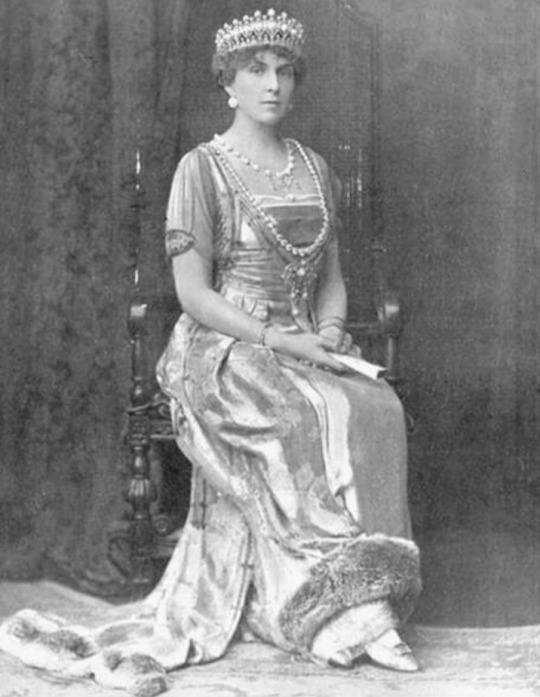
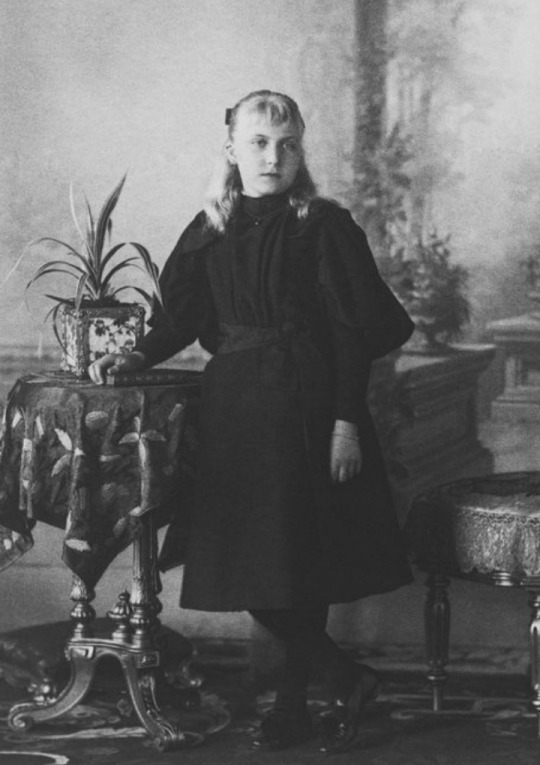
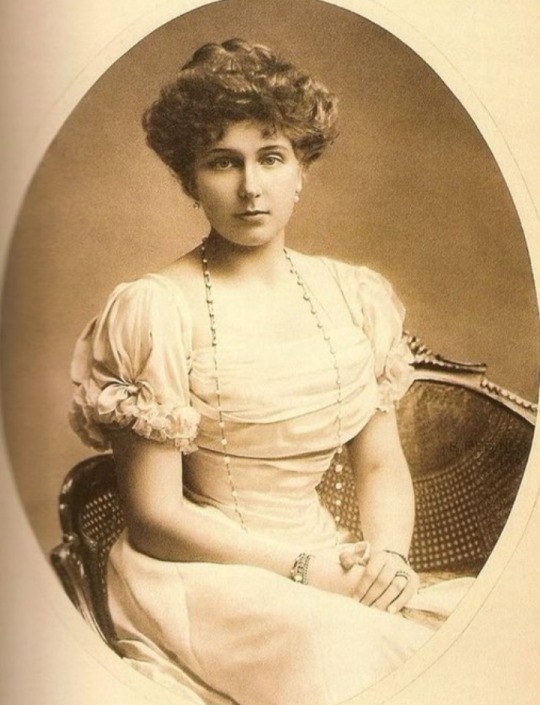
BORN ON THIS DAY:
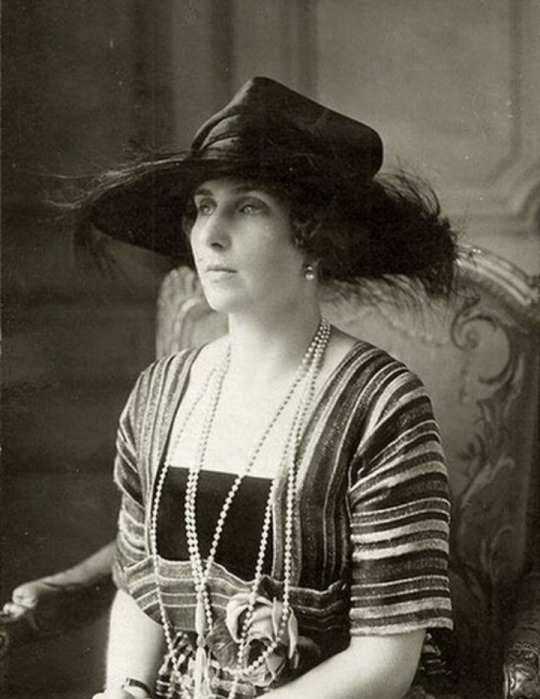


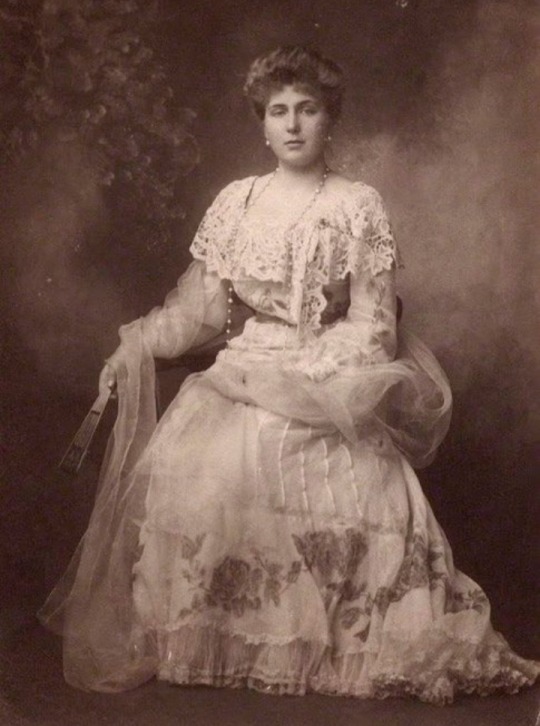
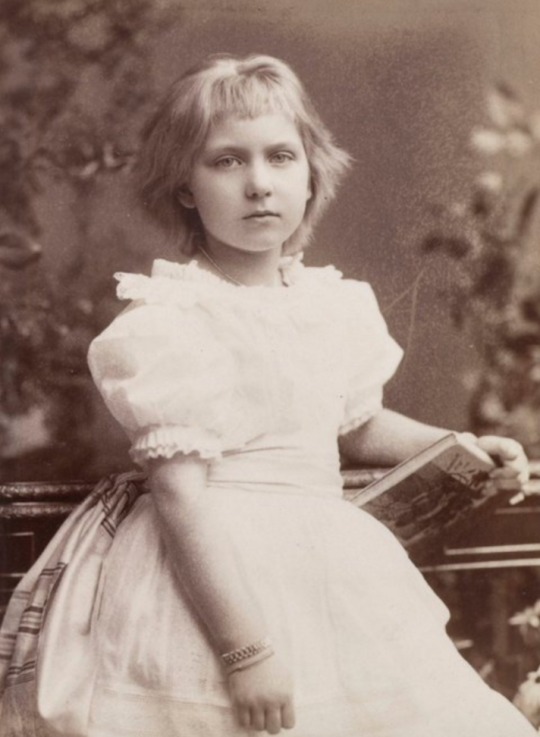
Victoria Eugenie of Battenberg (Victoria Eugenie Julia Ena; 24 October 1887 – 15 April 1969) was Queen of Spain as the wife of King Alfonso XIII from their marriage on 31 May 1906 until 14 April 1931, when the Spanish Second Republic was proclaimed.
A Hessian princess by birth, she was a member of the Battenberg family, a morganatic branch of the House of Hesse-Darmstadt.
She was the youngest granddaughter of Queen Victoria and Prince Albert.
Unlike other members of the Battenberg family who were accorded the lower rank of Serene Highness, Victoria Eugenie was born with the rank of Highness due to a Royal Warrant issued in 1886 by Queen Victoria.
#Victoria Eugenie of Battenberg#King Alfonso XIII#Spanish Second Republic#House of Hesse-Darmstadt#House of Battenberg#House of Saxe-Coburg and Gotha#House of Windsor#House of Bourbon-Anjou#House of Habsburg-Lorraine#British Royal Family#Spanish Royal Family
8 notes
·
View notes
Text

source: bishopsbox
Hildegart Rodríguez (1914-1933)
The story of Hildegart
La historia de Hildegart
1 note
·
View note
Text

9 notes
·
View notes
Text

Spanish Republican women with Flag of the Second Spanish Republic
26 notes
·
View notes
Text

NationCats Flag Cards - Spain (1931-1939)
4 notes
·
View notes
Text
Spanish republican flag poll nº. 2
Question 2:
How it would look like with the three stripes all the same size:

And how it would be with the middle stripe twice as big:

Link to poll 1.
Link to poll 3.
#flags#vexillology#poll#polls#spain#spanish republic#second spanish republic#flag#flag poll#third spanish republic#republicanism
8 notes
·
View notes
Text
forgot to post this here oops
so there's been this colour wheel thing going around [at least on twitter] and i pulled some flags out of the depths of my head for it; i'm kinda proud of this (especially since i managed to do this in one go without getting too distracted)

going around the wheel, i've added:
red - aberdeen
orange - bhutan
yellow - new jersey
green - (pre-2011) libya
light blue - luxembourg
dark blue - bougainville
purple - second spanish republic
pink - newfoundland (no labrador)
heres a blank version of my edited circle and an unedited one if anyone wants to do this


#countryhumans#art#digital art#statehumans#cityhumans#countryhumans bhutan#countryhumans libya#countryhumans luxembourg#countryhumans spanish republic#countryhumans bougainville#statehumans bougainville#statehumans new jersey#statehumans newfoundland#cityhumans aberdeen#countryhuman#this took like 4 hours please appreciate it#if anyone is down here i may do a second#but like other people choose the flags#no guarantees though
16 notes
·
View notes
Text

"La vieille Espagne se transformer," Le Petit Journal. October 1, 1933. Page 4. --- Problèmes et conflits du travail. - Propriétés confisquées. - Salaires de misère. --- Voici le troisième et dernier article, d'une série consacrée à l'étude de la situation actuelle en Espagne. Au lendemain de sa révolution, ce pays se trouve en présence de difficultés communes au monde entier, et aussi de difficultés particulières. Nous avons traité des difficultés particulières, tout au moins des principales mouvement autonomiste catalan; question religieuse. Il est intéressant de voir maintenant comment la république s'efforce de résoudre des difficultés économiques créés par la crise.
UN DEMI-MILLION DE CHOMEURS L'Espagne compte environ 450,000 chômeurs, officiellement. Le chiffre réel est forcément plus élevé encore. Mais en outre, le niveau des salaires de ceux qui travaillent est un des plus bas du monde civilisé, de sorte que bien des ménages d'ouvriers vivent dans une situation proche de la misère.
L'homme que l'on a chargé d'améliorer cet état de choses est Don Francisco Largo Caballero, ministre du travail depuis la chute de la mo- narchie. Un homme grisonnant de 64 ans, qui a milité toute sa vie dans les unions ouvrières et aussi dans le parti socialiste. Anti-monarchiste notoire, il s'est aussi, sous l'ancien régime, livré à des manifestations qui lui valurent de brefs séjours en prison. Il y rencontra même Alcala Zamora, aujourd'hui président de la république.
CODE DU TRAVAIL Caballero a fait voter 125 lois. constituant une sorte de code du Travail. Mais la clef de vo��te de cet édifice est une loi règlant les rapports entre patrons et employes. Son but est de substituer aux contacts personnels des deux parties les contrats collectifs. Ces contrats ne sau- raient contenir de clauses inférieures aux minima fixés par les lois. Des jurys mixtes, composés de six patrons et six employés, sont constitués dans chaque région pour aplanir les conflits. Et des deux côtés l'on doit s'en remettre à ces jurys. Le gouvernement espagnol tend à prohiber le recours à la grève. En certaines régions, où la situation politique est la plus tendue, la grève est formellement interdite.
Signalons que la loi accorde aussi au personnel un droit de regard sur les comptes de l'entreprise et une participation aux bénéfices. Mais les ouvriers de leur côté sont soumis à certaines obligations de travail effi- cace, de fidélité à leur entreprise, et de discrétion quant aux secrets de celle-ci. Les adversaires les plus résolus de ces lois sont les communistes, ce qui est singulier et intéressant à noter.
Nous avons dit que les salaires sont faibles en Espagne. Il y a il est vrai certaine contre-partie dans le bon marché de la vie. Le salaire moyen d'un ouvrier agricole est de 70 cents à un dollar par jour. Celui d'un ouvrier d'industrie est d'environ $1.50. Les métiers exigeant des ouvriers qualifiés une certaine technique, comme par exemple l'imprimerie paient de $1.70 à $1.80. Les employés de commerce touchent des traitements analogues.'
PROBLEME AGRICOLE Le problème agricole est, lui aussi, très sérieux, et bien différent de celui qui se pose aux Etats-Unis ou au Canada par exemple. Les trois quarts des Espagnols vivent à la campagne. Et des millions d'entre eux sont comme des serfs attachés à la glèbe qu'ils ne possèdent pas. Là encore le chômage sé durement pour chaque poste duvrier agricole, il se présente ving, candidats.
La propriété est peu divisée en Espagne, et de grands propriétaires fonciers possèdent d'immenses étendues de terrain. C'est à cela surtout que s'est attaqué M. Marcelino Dominguo, ministre de l'Agriculture dans le cabinet présidé, et vigoureusement dirigé par M. Azana. On a créé un Institut de réformes agraires. Cet Institut a dressé v'inventaire des propriétés foncières, et l'on a confisqué nombre de res vistes domaines. L'Etat reste propriétaire de ces terres, et les loue à bon compte aux paysans. Quel sera le fruit de cette politique ? On le sauradans quelques années. Si les paysans sont satisfaits, la jeune république sera consolidée. Si au contraire l'ex- périence échoue, les masses paysannes apportant leur soutien aux éléments restés monarchistes, la face des choses pourra changer. Image caption: Voici, au-dessus d'un maigre fleuve, un pont en dos d'âne dans on paysage encerclé de montagnes. Le tout, inondé de soleil, constitue un aspect typique de la campagne espagnole. A gauche un marchand d'habits dans une rue du vieux Madrid.
#república española#spanish republic#republican spain#spanish revolution#psoe#spanish socialism#socialist party#second republic#social reform#social crisis#interwar period#capitalism in crisis
1 note
·
View note
Text
Yo Goyim! Looks like I'm going to need to give some of you a crash course on what antisemitic language looks like, because I've been seeing entirely too much of it from some of you here on Tumblr.
Now, I think it's time for a Jewish history lesson, because I've been seeing way too many Nazi-related conspiracy theories going around. If you hear contradictions to the basic information that I am about to share (i.e., if you hear someone saying that the Jewish people are "a race that originated in Europe"), it is likely that you are hearing a white supremacist, anti-Jewish conspiracy theory.
So, here's the basics of Jewish history. Jews are indigenous to the Levant have been there for thousands of years. The Levantine people that Jews descended from have been in that area of the Levant since the Bronze Age. Jews as a distinct people have been there since the Late Bronze Age. Before it was Palestine it was the Kingdom of Judah, then Judea, and then Judaea, and that is literally where we are from. The word Jew means "a person from the Kingdom of Judah." The Romans renamed the area Syria-Palaestina (which they borrowed from the Greek name Palestina) in the 2nd century CE after destroying the Second Temple in Jerusalem and leading another campaign to try to eradicate the Jewish people (guess what, we're still here, motherfuckers).
And even after the Romans tried to annihilate us, even after they scattered many of us into European diaspora, many Jews came back, again and again over the ages, and there have nearly always been Jewish communities in the region throughout history.
And if you come for me or try to dispute any of this history with white supremacist bullshit, I am a Jew who has studied way more Jewish history than you. And as politely as possible, you can take your white supremacist conspiracy theories and fuck off into the sun.
Okay, with all that out of the way, let's get into it!
Gloves are coming off, because this is just a sampling of the Nazi dogwhistles I've been seeing here on Tumblr about the Jewish civilians who were tortured, murdered, and worse:
- If you say shit like, "The Jews got what they deserved"...
GUESS WHAT? You're talking like a white supremacist, and you need to fucking check yourself.
- And if, on the other hand, you say shit like, "The reports were probably overblown. I think those were paid actors. I don't think those Jews were murdered. No Jewish children were killed. No Jewish bodies were desecrated" blahblahblah...
GUESS WHAT? You get to sit with the Nazis at their table for lunch.
- If you tell Jews "go back to Europe where you came from"...
GUESS WHAT? Not only are you telling the descendants of Jewish refugees to go back to the Spanish Inquisition, the Russian pogroms, and the Nazi gas chambers, as I explained in this post, but you are also repeating a white supremacist conspiracy theory about the origins of European Jews.
Jews are a Levantine people from the area of the Middle East currently called Israel (formerly called the Kingdom of Judah, and then Judea). While there was some emigration to Europe during the late Roman Republic and the early days of the Roman Empire, the first mass migration of Jews to Europe was a forced migration. Gentiles from the Roman Empire dragged us there as captives after 70 CE, the year Rome destroyed the Second Temple.
- And if you're telling yourself that there are "good Jews" and "bad Jews," and those Jewish civilians were "bad Jews," so they deserved to be tortured and killed...
GUESS WHAT? You're spouting white supremacist ideology.
Antisemitism takes a long time to deprogram.
A lot of gentiles grow up with anti-Jewish ideology that they have never questioned.
And a lot of Christians are kept ignorant about Jewish history because preachers and priests fear it would make Christians question the many inaccuracies in the Bible.
But the first step in noticing antisemitic beliefs is to notice when you start singling people out *because* they are Jewish.
And I have been seeing some of you gleefully celebrating the murder of Jewish civilians *because* they are Jewish.
And that is antisemitism.
That is one step closer to the next generation of Jews getting shoved into the gas chambers. And there are only 16 million of us left in the entire world. We're 0.2% of the world's population. And we cannot afford another Holocaust.
And if your response to me saying that is, "Well, those Jews deserve it."
Guess what. You are making it easier for Nazis and white supremacists to spread hatred and commit acts of violence against Jewish people. And you will have to live with that blood on your conscience.
So...
If you are a gentile, and you see other gentiles repeating these kinds of white supremacist dogwhistles about Jewish people, here's how you can help:
1. MOST IMPORTANTLY: Help them direct their focus away from attacking random Jewish people online and towards helping Palestinians.
Actions that people can take right now are contributing to verified charities and relief organizations that help the people of Gaza. Only donate to organizations that are verified by CharityNavigator.org and CharityWatch.org.
2. Call that shit out. Tell people that they're being antisemitic, and explain that Jew-hatred is dangerous to Jewish people. Antisemitism gets Jews attacked and it gets Jews killed. In the US, many synagogues require round the clock security to protect against white supremacists who want to murder Jews. In Pittsburgh, my old home town, a group of Nazis from north of the city planned the murder of Jewish congregants at Tree of Life Synagogue, and so far only one of them (the gunman) has been arrested and convicted of the murders. The others are still at large.
3. Explain to them that it is antisemitic to celebrate someone's death *because* they're Jewish. ALSO, it is antisemitic to blame a random Jewish person for the actions of ANY government, whether that be the Israeli Government or the US Government.
4. Explain to people that they're not going to solve this conflict by posting antisemitic statements and memes online. All they will do is alienate the Jewish people in their lives and make those Jews feel scared and unsafe. And they will contribute to this current wave of antisemitism.
Antisemitic hatred doesn't help Palestinians. All it does is put Jewish people around the world in danger.
#tl;dr if you celebrate the murder of jews *because* they are jews you are an antisemite - end of story#just fyi - i will be monitoring the comments so if anyone posts anything antisemitic i will delete your comment and block you#antisemitism tw#jumblr
4K notes
·
View notes
Text
88 years ago today 4 fascist generals attempted a coup d'etat on the Second Spanish Republic. The right wing had lost the February elections to the United Front, made up of almost all of the left parties in the republic. This failed coup d'etat turned into the Spanish Civil War, during which the western democracies abandoned the republic in tacit approval of the reactionaries, and after which the 40 year long fascist dictatorship was protected by the US and NATO for the sake of anti-communist repression.
Fascists do not care about election results, bourgeois legality is only useful to them for as long as they can exploit it. Liberal democracies and popular fronts are not inherently anti-fascist either, they have consistently shown a preference for fascists and other reactionaries. The only viable opposition to fascism has always been the revolutionary organization of the proletariat with the communist party, advocating for anything less is naive at best and active collaborationism at worst.
914 notes
·
View notes
Text

Today on the second advent and door no. 8 we have a lovely pair, La Grace and Shtandart

More about them here:
La Grace is a replica of a historic tall ship from the 18th century that will sail the seven seas like the original ship 300 years ago. The aim of the project is to give anyone interested the opportunity to sail a historic ship as part of the Navy's training programme and to share the proud traditions of sailing.
The brig was built between 2008 and 2010 by a group of volunteers from the Czech Republic and Slovakia in an Egyptian shipyard in Suez using traditional craft techniques. The brig was designed by its owners (Josef Dvorsky and Daniel Rosecky) according to technical drawings published in 1768 in the Architectura navalis mercatoria by the Swedish admiral Fredrik Henrik af Chapman.
According to available sources, the original La Grace was a ship owned by the first Czech naval captain Augustin Herrman, a famous navigator in Czech history. He sailed across the Atlantic in the service of the Dutch West India Company. After leaving the company, he commanded the small privateer ship La Grace. This relatively weak and vulnerable ship with six cannons brought large quantities of captured Spanish galleons to New Amsterdam every year.
The Shtandart is a replica of an 18th century frigate. The original was the first frigate built at the Olonez shipyard under Peter the Great and the first ship to be commissioned as a frigate for the Baltic Fleet. During the Great Northern War, Tsar Peter succeeded in conquering the area that would later become St Petersburg on the Neva. With the conquest of the fortress of Nöteborg in 1702, Lake Ladoga was removed from Swedish control and the Tsar hoped to gain access to Finland. The aim of these endeavours was to gain access to the Baltic Sea in order to establish a port city there for trade and naval purposes.
The frigate was built from 1702 at the Olonez shipyard on the Lodejner Feld on the River Swir near Lake Ladoga, where it was given its name in reference to the newly introduced Russian naval flag, a standard. Tsar Peter personally transferred the ship to the Baltic Sea in 1703. When seven Swedish ships of the line, five frigates and other small ships attacked the mouth of the Neva in June 1705, eight Russian frigates, presumably including the Schandart, lay behind a barrage of trees. In 1712 and 1713, she took part in troop landings in Swedish Finland near Vyborg. No further use is mentioned after this action. The ship was decommissioned as unserviceable in 1718. In 1723, the ship was scrapped in St. Petersburg.
According to another version, Tsar Peter had ordered the Schandart to be preserved as a reminder of the beginnings of the Russian fleet. Tsarina Catherine I ordered the condition of the Petrine ships to be examined in 1727. However, the Shtandart broke up while trying to take her out of the water.
As a result of the sanctions against Russia following the Russian invasion of Ukraine in 2022, Russian ships are denied access to European ports. However, following a request from the Président des Amis des Grands Voiliers association to the French Secretary of State, the Shtandart was granted permission to call at French and Spanish ports and has remained there ever since. There are plans to put her under the French flag, as her captain strongly distances themselves from Russia.
#naval history#tall ships#brig la grace#frigate shtandart#18th century#replicas#age of sail#advent calendar#day 8
108 notes
·
View notes
Text
I created a map of countries based on their relationship with jayvik nation ;)

Evidence of jayvik nation being supported (or not) by other countries
1. Brazil - I feel like this is the country with the strongest official support from netflix, league and the actors, not to mention that Brazilians are our nation's strongest soldiers ;)




2. Poland - support from both official accounts of netflix and league (The second pic is more about Vik since it's a collage of Viktor's pictures but from what I get it was posted right after the release of his in game interactions, the text on the pic is his official line to Jayce 'neither friendship nor love (...) Jayce' that is interpreted as romantic by many and censored in some counties, it also has 2 jayvik frames. It does seem pro-jayvik)


3. Greece - they're basically canon m

4. Italy - League collaborated with cosplayers to make jayvik kiss... and posted the kiss pic on valentine's day

5. Czech Republic


6. England, Scotland, Wales, Ireland and Nordics - nothing explicit, but interpreted as many as support, so I classify them as somehow friendly

7. Russia - they straight up censored it so they had to recognize the romantic undertones XD

8. China - ok idk how it happened that China is in somehow friendly XDD

9. Latam - official support from actors, but from what I got, they also censored it -the translation of the partner used in Latin Spanish dub is purely friendly but then maybe it was just a problem with translating or they could not anticipate the popularity of the ship and chose to play it safe. All things considered, I put them in the somehow friendly category.

10. France - Fortiche is in Paris and several animators openly spoke up about shipping and supporting jayvik. They also went out of they way to make jayvik scenes look and feel romantic despite CL wanting to portray them as brothers. I won't include any screens here cause there's simply too much of them but if you will look for it you'll be pleasantly surprised
11. Canada - they gave us bbno$
12. Spain - I heart it was censored there :/
13. Germany - they gave us CL.... Map with the screens. Canada is not here because it was only added after the suggestion from another user :)

If you have any new information or suggestions that something should be changed, let me know XD P.S I made this mostly using info from this thread on x and this post on tumblr You can find even more info there, such as screens of the animators showing their support.
#jayvik#jayce talis#viktor arcane#jayvik nation international relationship#jayvik nation's foreign affairs
48 notes
·
View notes
Text
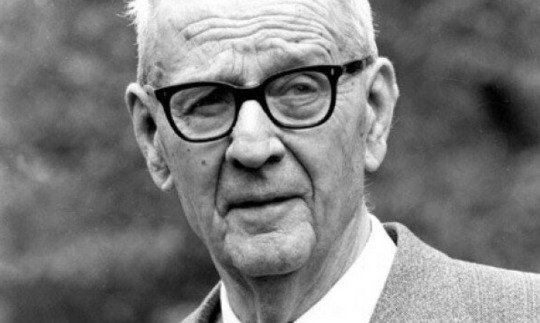
THURSDAY HERO: Giorgio Perlasca
Giorgio Perlasca was an Italian fascist and emissary of Benito Mussolini who had a change of heart and used his diplomatic status to save 5,218 Hungarian Jews from the Nazis.
Born in Como, Italy in 1910, as a young man Georgio became a fervent believer in fascism, believing it was the best system for achieving societal safety and prosperity. Dedicated to fascist ideology, he joined the Italian army to fight prime minister Benito Mussollini’s war of aggression against Ethoipia (the Second Italo-Ethiopian War, 1935-37). Italy invaded Ethiopia and sent leader Haile Selassie into exile in 1937. Still a committed fascist, Giorgio pivoted straight from Ethiopia to Spain, where he fought on the side of Franco’s Nationalists against the defenders of the Spanish Republic.
Giorgio went back to Italy in 1938, and that’s when his world was rocked and his personal belief system made a 180 degree turn. Just as he was returning to his native land, the Nazi-allied fascist government adopted the Italian Racial Laws, which persecuted and segregated Italian Jews and African immigrants from the Italian colonial empire. The first law banned Jews from working with the public or attending college. Books by Jewish authors were burned. The next set of laws confiscated Jewish property, prohibited them from traveling, and finally arrested and imprisoned them. Italian newspapers were filled with vicious anti-Jewish propaganda and hideous caricatures.
Giorgio Perlasca, the man who’d spent the last decade fighting for fascism, was horrified. Perhaps he’d been in north Africa and Spain for so long, he wasn’t aware of the extent of Nazi persecution of the Jews. He’d joined the fascists because, young and naive, he thought they had answers to societal problems. But he never signed up for the Nazis’ “final solution.” He believed in human rights, freedom and tolerance and therefore realized he had to reject fascism.
Ironically, just as he was rejecting Mussolini’s ideology, he was rewarded for his service by being granted diplomatic status and sent to Budapest to represent the interests of the Italian government. As an emissary, Giorgio’s most urgent mission was traveling throughout Eastern Europe to purchase large quantities of meat for Italian army soldiers fighting on the Russian front. Despite his political shift, he remained committed to what he felt was honorable work procuring food for Italians who’d been drafted into the army.
On September 8, 1943, Italy surrendered to the Allied forces. Diplomats like Giorgio had a choice to make: pledge allegiance to Mussolini, or join the Allies. Giorgio switched sides and instead of returning to Italy he was arrested and detained with other diplomats sympathetic to the Allies. After several months in captivity, he used a medical pass to leave the facility. He went straight to the Spanish embassy, which was being run by Angel Sanz Briz*, a diplomat who was secretly saving Hungarian Jews. Sanz Briz enabled Giorgio to claim asylum as a veteran of the Spanish war. Giorgio called himself “Jorge” (the Spanish version of Giorgio) and as a nominal Spaniard, was untouchable by the Nazi-allied Hungarian authorities since Spain was officially a neutral country.
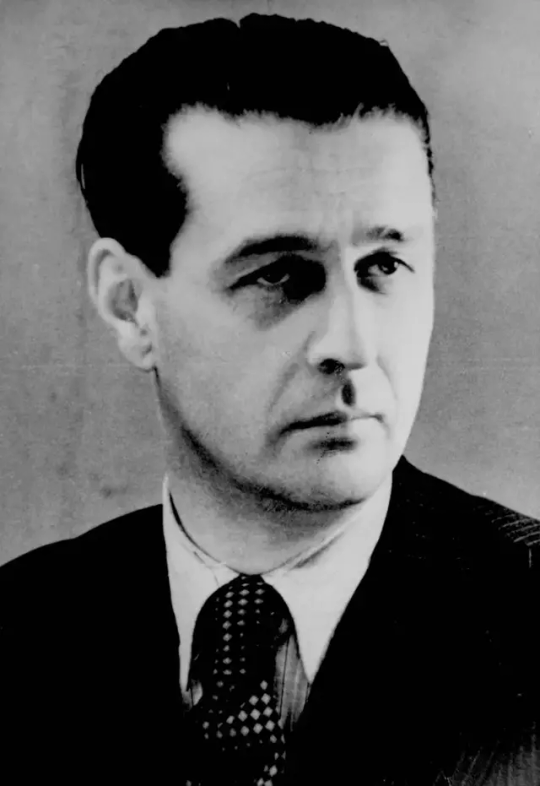
Giorgio Perlasca during the war.
Giorgio immediately teamed up with Sanz Briz to save Jews from the Nazi death machine, which was systematically massacring the Jews of Hungary at shocking speed. He later said, “I couldn’t stand the sight of people being branded like animals… I couldn’t stand seeing children being killed. I did what I had to do.” Giorgio convinced diplomats from neutral countries to shelter Jews in their embassies and homes. He created “protection cards” that identified Jews as being under diplomatic guardianship and therefore impossible to arrest. In November 1944, Sanz Briz was transferred from Hungary to Switzerland, and he urged Giorgio to go with him. However, instead of traveling to a safe country, Giorgio put his own life at risk by staying in Hungary so he could continue saving Jews from the Nazis.
The Hungarian authorities got wind of what Giorgio was doing, and they used Sanz Briz’ departure from the country as an excuse to order the Spanish embassy building and residences to be emptied and shuttered. In response, Giorgio made a bold move. He announced that Sanz Briz would be returning shortly, and he’d been appointed consul-general in the meantime. This bought him enough time to continue saving Jews, providing them with sanctuary and vital supplies. He also issued fake transit visas based on a 1924 law giving Jews of Sephardic heritage Spanish citizenship. The law had expired in 1930 but Giorgio managed to keep that part secret.
In December 1944, Giorgio stood up to high-ranking Nazi officer Adolf Eichmann – architect of the genocidal “Final Solution” – who was about to force two Jewish children onto a freight train headed to a death camp. Swedish rescuer Raoul Wallenberg later described watching Giorgio boldly defy the vicious Eichmann and rescue the Jewish boys.
Around this time the Nazi-aligned Hungarian government known as the Arrow Cross set up a squalid ghetto in Budapest for the city’s 60,000 Jews. As “acting Spanish consul-general” was privy to top-secret information, and he learned that the Arrow Cross was going to liquidate the ghetto – which meant murdering the men, women and children who lived there. Giorgio demanded – and got – a private hearing with the Hungarian interior minister Gabor Vajna. He threatened the high-ranking government official with severe repercussions against the “3,000 Hungarians” currently living in Spain. Unless the government backed down on destroying the ghetto, those Hungarian expats would be harshly punished financially, legally and professionally. The fact was, there were nowhere near 3000 Hungarians in Spain and the real number was a fraction of that. That bold threat, combined with a promise to help Vajna and his family escape the advancing Soviet army, prevented the Budapest ghetto from being liquidated, saving thousands of lives.
After the war, Giorgio Perlasca returned to Italy where he lived a quiet life as a businessman, married and raised a family. and didn’t tell a single soul about his heroic actions during the war. Meanwhile, a group of Hungarian Jews saved by Giorgio searched for him for decades. They knew their rescuer as a Spaniard named Jorge and it took 42 years for them to finally locate him. In 1987 Giorgio’s wife, children and community were utterly shocked to learn that this unassuming man had saved the lives of a documented 5,218 Jews and probably many more. The famous rescuer Oskar Schindler saved a quarter as many people as Giorgio Perlasca did.
Once Giorgio’s heroism was known, he became famous in Italy and a source of national pride. Giorgio Perlasca was the subject of a bestselling biography, “The Banality of Goodness,” which was made into a popular movie. He received many honors, including Righteous Among the Nations by Israeli Holocaust Memorial Yad Vashem, the Wallenberg Medal, the Hungarian Star of Merit, the Spanish Knight Grand Cross, the Italian Gold Medal for Civil Bravery, and many others. Noted Israeli composer Moshe Zorman wrote an orchestral piece, “His Finest Hour,” about Giorgio. There is a statue of Giorgio Perlasca in Budapest and a high school named for him, and he was featured on an Italian and an Israeli stamp.
Giorgio died in Padua, Italy in 1992.
For saving thousands of lives, and proving that people can change, we honor Giorgio Perlasca as this week’s Thursday Hero.
60 notes
·
View notes
Text
pretty sounds | steve harrington x reader
summary you and Steve share an apartment while you're both away in Uni, one night he comes earlier than he should and gets to enjoy himself
warnings fem!reader, 18+ mdni this is just smut guys i'm sorry. english is not my first language so I apologise if there’s some mistakes, not proof read!
a/n part 2 is up!
Steve always took his showers in the morning.
You preferred them at night.
Sharing a small flat with him was a quiet experience. He’d spent most of his time out of it anyway, preferring to study at the University library, or at the coffee shop you had down the corner. Or working half shifts in the small record store, where you also worked.
Roommate and coworker Steve were two very different people.
Roommate Steve was prone to laugh at your stupid jokes and watch stupid movies with you on the couch.
Coworker Steve tried not to talk to you that much, scared that if your boss saw you two chatting it up, he’d get accused of flirting with you. Scared that it was painfully obvious to everyone else but you.
But it was impossible for him to not stare at you when you’d come home exhausted after a stressful shift and mutter under your breath how much you wanted a hot shower. Or how he’d wait painfully to hear the record you had been playing while you studied in your room stop, knowing that you were about to knock on his door and tell him that if he had to go to the bathroom he better do it now before you took your very deserved long shower.
He often teased you about how much you’d like to have a bath instead.
You’d laugh it off, even though he was absolutely right.
The truth is, he loves to hear you while the water hits your body.
The bathroom stood between his room and yours.
His bed against the wall, he usually laid down on it with a second hand book about whatever topic he needed to research for his next paper on American Revolution History or European History and its impact in Modern World. It didn’t matter to him, because in the next ten to twenty minutes he could hear you singing to yourself, your voice drowned by the noise of flowing water hitting your wet body. Though he did love it when you’d talk to yourself.
Today was different.
He’d come home later than he usually does, he had spent way more time than he intended stuck in the library trying to write his last paper on the Spanish Republic and he had little to no information on it, and he had exhausted himself enough to go straight to his bed, letting his body hit the mattress without even bothering to turn on the lights.
That’s when he heard the shower turning on.
At least he can hear you sing for him for a bit he thinks.
But he was wrong for once.
You thought you were alone, you thought you could be as loud as you wanted to, or as much as you needed to. The truth is, you had been crushing on Steve for a while now, and sometimes, only sometimes, you fantasized about him. Maybe more than you’ve been proud of.
So now, as you were standing there, with the hot steam hugging all the parts of your body, and the water dripping drow your curves, you started thinking about how it would feel if what was keeping you warm wasn’t the hot air, but him, standing behind you, kissing every inch of your bare skin.
You couldn’t help yourself, not now. So your fingers traveled down your folds, your fingers playing lazily with your dripping wet pussy, circling your clit as you thought of him, soft small moans came out of your mouth. And the hunger only grew, as images of him walking around the flat without his shirt and hair dripping wet invaded your mind. The way his hair sticks onto his forehead every morning, and he always smiles at you before telling you good morning in that husky early morning voice.
It was driving you crazy, so you started touching yourself with more speed, a clearer pattern, tempting your entrance as one of your fingers graced it.
Unknown to you, Steve was laying on the other side of the wall, his eyes opened as he heard you moaning, with each one growing louder and clearer, his mind became clouded, as he felt the way his jeans started to feel to tight on him, he needed to free himself, so he did the only thing he felt like he could. He sighed as his cock hitted his stomach once his pants and underwear laid on the floor. And he began stroking himself, softly, slowly, letting himself be guided by your voice as you whined.
The only thing that made him touch himself faster is when he heard the way your voice moaned his name.
You were so close to cumming, one of your hands had three of your fingers deep inside you, reaching that spot that made you see stars, as the other held the shower head closely to your clit, the vibrations of it making it feel when you closed your eyes that he was the one eating you out. And even after you had comed and you had screamed his name as loud as you could you left it there for a moment, recomposing yourself. Wishing he was there so you could kiss him, wishing he’d feel what you feel.
He did, but you didn’t know, though now he did.
His hands wrapped around his throbbing cock fast, and tightly, he resorted to biting his lower lip so he wouldn’t be a whippering mess, but he couldn’t help himself when he came all over his stomach and he looked down at himself, with the stupidest grin he could fathom.
-
if you enjoyed it please leave a comment or reblog. i promise it makes a huge difference <3
requests are open
#steve harrington fluff#steve harrington stranger things#steve harrington imagine#stranger things steve#stablished relationship#steve harrington#steve harrington x reader#steve stranger things#steve x reader#sts4#steve harrington x afab!reder#stranger things#steve harrington fanfic#steve harrington blurb#steve harrington x y/n#steve harrington x fem!reader#steve harrington one shot#steve harrington headcanon#steve harrington x fem#steve harrington x ex!reader#steve harrington hurt/comfort#steve harrington x you#stranger things 4#stranger things fanfiction fem!reader#stranger things fic#stranger things x reader#fluff steve harrington#hurt/comfort#friends to lovers#miscomunication trope
381 notes
·
View notes
Text
Italian literature tournament - First round.

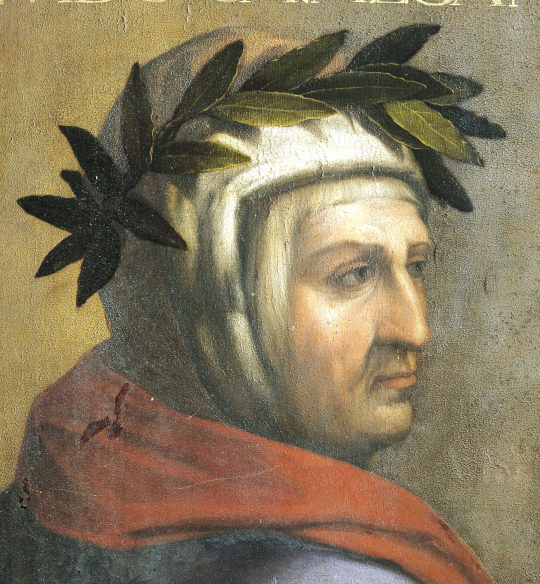
Propaganda in support of the authors is accepted, you can write it both in the tag if reblog the poll (explaining maybe that is propaganda and you want to see posted) or in the comments. Every few days it will be recollected and posted here under the cut.
The propaganda here are in order from left to right, first Carlo Gozzi and then Guid Cavalcanti
Carlo Gozzi propaganda by @girlboccaccio
Do you like theatre? Do you like opera? Are you interested in commedia dell'arte? Do you like fables with dubious morales, fairy tales with dark hidden meanings, plays inspired by 16th morally ambiguous short tales and The thousand and one nights? If yes you should take two second and vote for Carlo Gozzi (yeah the funky guy in b/w on the left). Without him we couldn't have masterpieces like Puccini's Turandot and The Love for Three Oranges by Sergei Prokofiev. He was a great admirer of spanish literature and theatre. He defended commedia dell'arte and funky plays when this manners of making theatre were dying. Immaculate yeah? He wrote an autobiography named Useless Memories, truly cunty, right? He was a rate A+ hater when he decided to start shitting against the king of the new modern way of writing theatre, Carlo Goldoni. He died in a Country that stopped existing in the last decade of his life (The Not So Serene Republic Of Venice) and lost all his friends in exile. He was the bitch of the venetian intellectual life. He was the bitch of the coolest italian actresses of the time. He was friend with Francesco Algarotti, the loveboy of Frederich the Great.
Fella, if you love the 18th century, you have only one choice in you hand: vote Carlo Gozzi.
Propaganda in favor of Guido Cavalcanti by @eresia-catara
May I add further propaganda for Guido: He's a noble, he disdains aristocrats, he was Florence's number one Server of Cunt, he was the city's faggot, he was heretical, he went on a random pilgrimage but interrupted it and managed to be buried in a church anyway, he had an archenemy who sent some men to murder him on said pilgrimage, he came back and tried to murder him back in plain daylight, he gave zero fucks about politics, he got exiled because he was considered a menace for the city. He SAW DANTE's poetical talent, encouraged it, shaped it, and through him the whole of italian literature. Think about it. Also they became besties until they evolved to a tormented psychosexual haunting dynamic (see break-up poem) where Dante himself actually exiled him. In the 13th century his poetry anticipates so many of the literary themes of the XXth century, going from fragmentation of the self (his is basically vivisection and dispersion of his parts), to dissociation from one's own mind and body, lack of identity, irony, desecration, his poetry is full of schizophrenic-like hallucinations, reading them is truly a trip, and yet his language is profoundly meoldic and sweet. And there's also gender-fuckery. and theater, of course, because his poems develop like a scene from a theater (adding layers to the dissociation). So really he has it all guys.
Guido Cavalcanti propaganda by @girldante
GUIDO CAVALCANTI PROPAGANDA ABBIAMO:
LA DISSOCIAZIONE SCHIZOFRENICA:

IL COMICO, IL SIMPATICO BURLONE, IL MEMATORE ANTE LITTERAM:
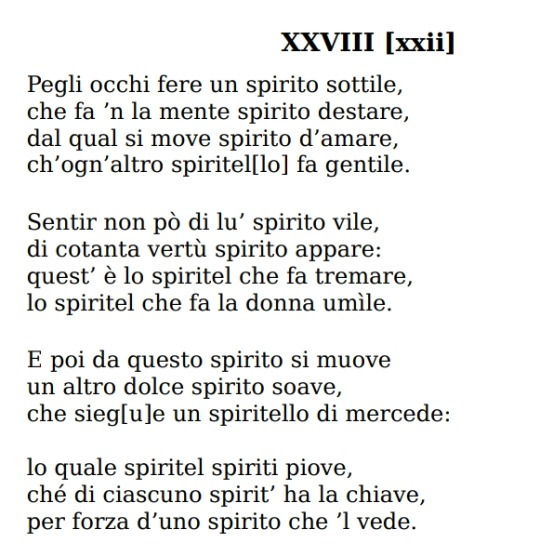
IL MACABRO, IL GORE, I SINTOMI™

IL BREAKUP TOSSICO PASSIVO AGGRESSIVO CON DANTE

in conclusione

49 notes
·
View notes
Text
Spanish republican flag poll nº. 1
Alright folks,
I guess that most of you reading this already know something about the Spanish republican flag, but if not, quick history lesson: Spain is a monarchy, a kingdom, but it wasn't always this way, from 1931 to 1936 it was a republic, the Second Spanish Republic. This was it's flag:

Nowadays the flag (or rather it's shield-less version) has come to represent the political movement for the end of the monarchy here in Spain, and so, I've devised a series of polls so that you, the people, may choose how the flag of a potential Third Spanish Republic may look like. Comment if you are any more ideas for polls like these.
Question 1:
Link to poll 2.
Link to poll 3.
#polls#poll#flag poll#spanish republic#republicanism#second spanish republic#third spanish republic#vexillology#flags#flag#Spain
10 notes
·
View notes